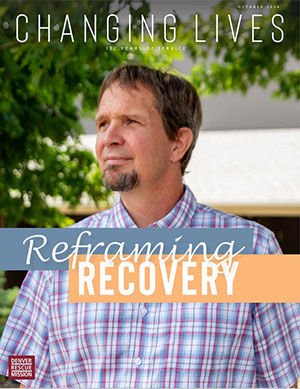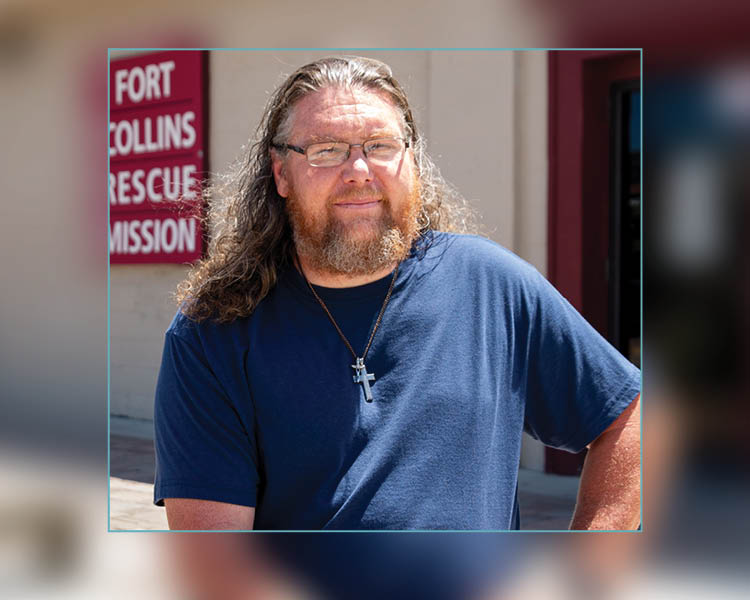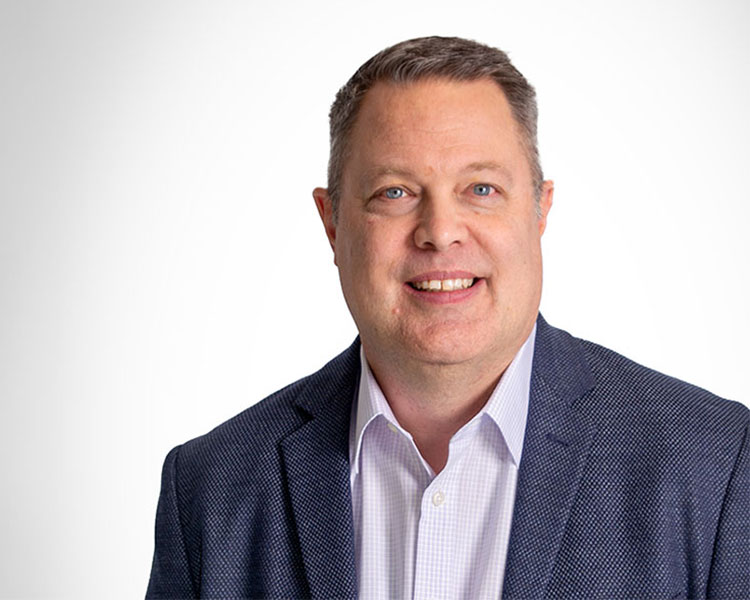James joined the New Life Program with one main goal: to stay sober and find a life of recovery. And yet, as he progressed through the program, he gained and achieved more than he ever thought possible.
On day one of joining the New Life Program, James was connected with a counselor, not realizing how much of a support she’d end up being on his journey of recovery.
“I always feel better after talking to her,” James shared about his counselor, Zaria Norman. “Her attitude and cheeriness, even when I have negative things to say, she [reminds me], ‘Look at everything you’ve done.’”
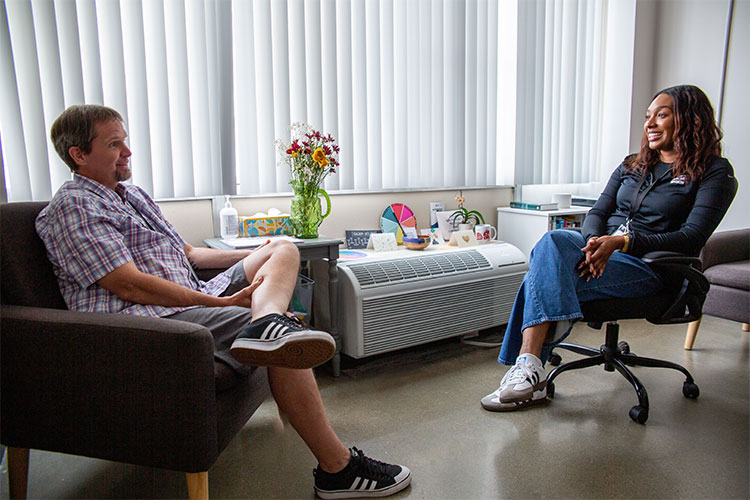
James started drinking at the age of 14 and struggled with alcoholism for the next 30-plus years. Through the ups and downs of life—owning several homes, working and losing jobs, while in between spending time in and out of prisons and jails—alcohol remained a constant in his life.
That is until he was robbed, leaving him with nothing and experiencing homelessness for the first time in his life.
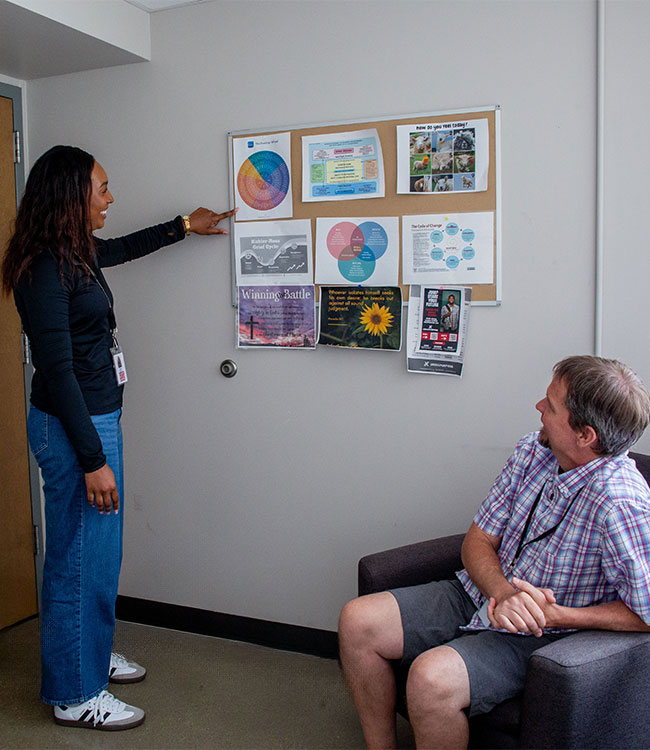
“Since that day, I was highly motivated,” James said. “I went to 48th and I stayed sober that whole time.”
Living at the 48th Avenue Center shelter motivated James to decide to join the New Life Program, where he began engaging in classes, counseling, case management, and more.
“I got my license back for the first time since 2007. I’ve gotten two certifications in cybersecurity and am trying to get a bachelor’s in cybersecurity,” James shared. “Zaria was a huge support. When I wanted to give up on college, she convinced me that I should try to continue.”
Each counselor’s overarching goal is for participants to take control back over their lives and to help each person reframe their definition of recovery.
“Most people think it has to do with just addiction or substance abuse, but recovery is mental health. It’s physical health and building community,” Zaria explained.
It’s physical health and building community,” Zaria explained. One of the most beneficial things James learned in counseling was about codependency and its role in his own relationships. “He really leaned into attachment theory—the notion that our early caregiver relationships affect our self-efficacy and possibly relationships as an adult,” Zaria said. “It was like a complete switch after that. He gained so much self-esteem because he saw that he could do things on his own.”
“Zaria has shown me the importance of my autonomy and my mental health.”
-James
6 Guiding Principles for a Trauma-Informed Approach
Safety
Offering both physical and emotional safety
Peer Support
Sharing experiences, such as in the New Life Program’s process groups
Collaboration & Mutuality
Everyone has a role to play in being trauma-informed
Trustworthiness & Transparency
Building rapport and being sensitive to people’s needs
Cultural, Historical & Gender Issues
Overcoming stereotypes and recognizing individual needs
Empowerment, Voice & Choice
Providing opportunities for choice and empowering people to identify their emotions and advocate for their needs
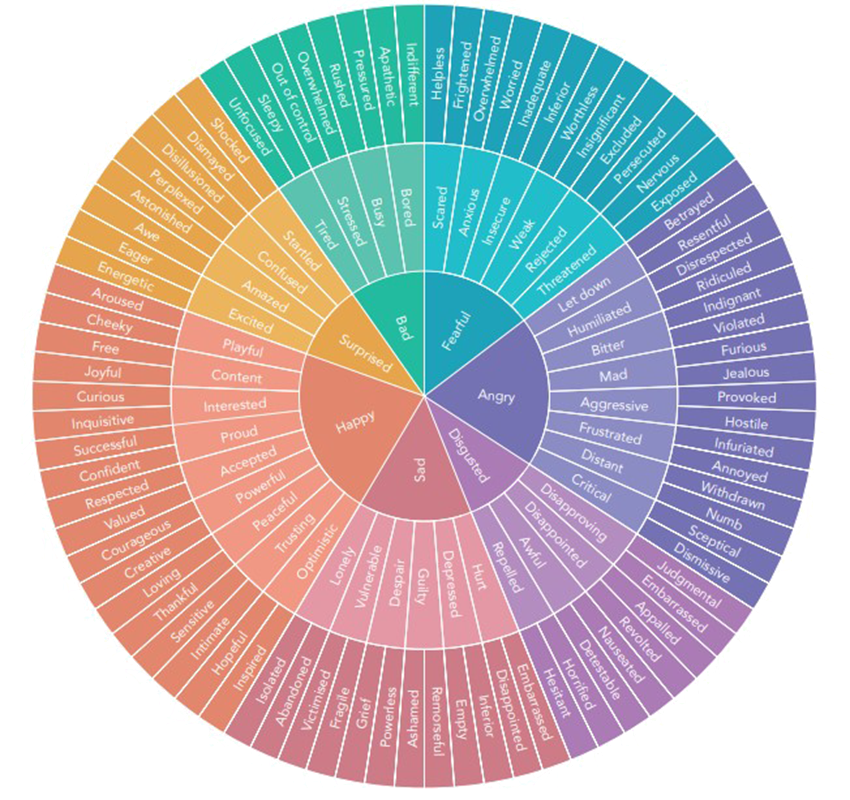
The Feelings Wheel created by Dr. Gloria Willcox
“[Process groups] give you the opportunity to open up about things that are bothering you. Things that are brought up make me realize that maybe that was going on with me as well.”
-James
Counseling’s Impact
“One guy, who recently graduated, came in with both addiction and mental health [issues]. His goal coming in was, ‘I need to get better to have my son back.’
He had a rough start, and we weren’t sure if he would choose to stay. But he did. He worked through it. He’s connected with his son now and sends updates with pictures of him and his son. It is just really sweet.”
-Zaria, Counselor
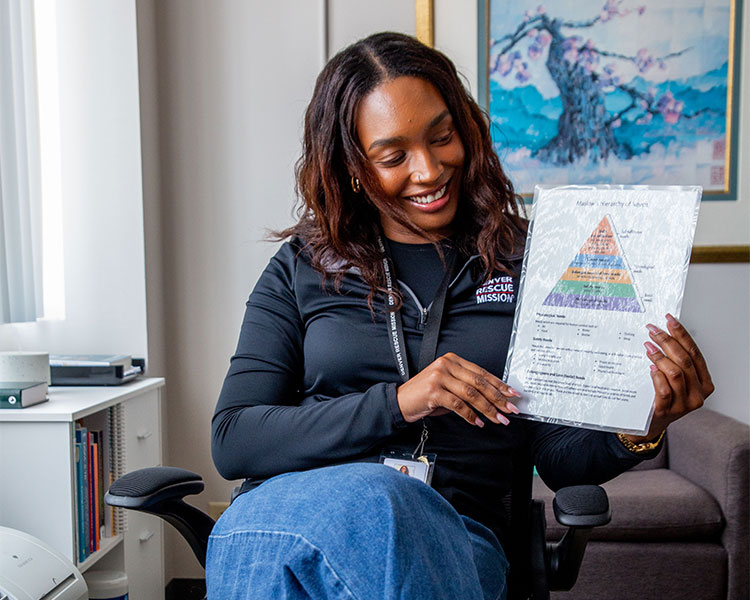
James is grateful to his counselor for helping him learn and apply useful tools, ones that he has carried with him now that he’s in stable housing. “I’m coping with things better,” he said. “I’m handling instead of catastrophizing. That’s something that has changed in me. It has been huge.”
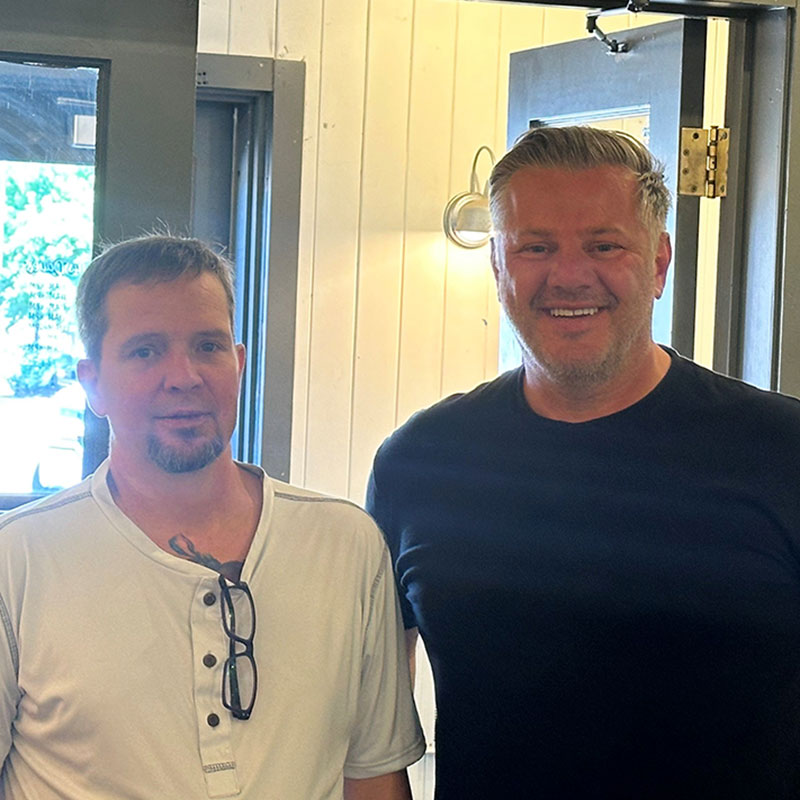
James and his mentor Stan have been meeting regularly as part of the Mission’s mentor program, including recently for lunch in this photo. Mentors provide relational, emotional and spiritual support to men and women participating in the Mission’s programs. You can make an impact on someone by becoming a mentor today!
Thank You for Changing Lives
Your support gives individuals like James hope for a brighter future! Thank you for continuing to believe in our mission to serve those experiencing homelessness.




